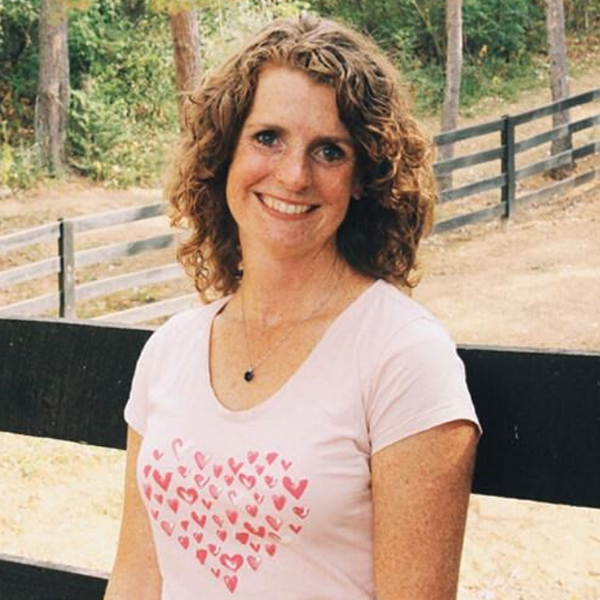This post was written by Angie Hooie, a member of the INCM Blog team.
Ministry brings with it overwhelming needs and demands coming at us from all directions, and, many times, out of control schedules. Sometimes, I can feel like I’m operating out of the tyranny of the urgency instead of what is actually most important at the time. What I’ve found to be true is if we continue to operate out of the frenzied busyness that ministry life brings, that will lead to our eroding effectiveness, tired hearts, and burnout.
So, what’s been my solution to a more focused and effective workflow? I first came across the concept of “Intentional Living,” developed by Steve Hudson, when I was brand new in full-time ministry. Intentional Living is defined as a journey toward greater effectiveness in life and ministry based on a conviction that you want to maximize the gifts God has given you and the life God has entrusted to you for His sake.
Living intentionally, on purpose with purpose, is not about being busy or keeping busy. Let’s face it, we are all busy. Living intentionally isn’t even about activity, because activity doesn’t always equal results. It’s about greater personal effectiveness in the kingdom of God.
Accidental Living vs. Intentional Living
Accidental living is living moment to moment, feeling harried, doesn’t involve advanced planning. Accidental living is busy without any defined key priorities and allows life to make choices about your schedule. Accidental living does not distinguish between mission critical and what’s not mission critical.
In contrast, intentional living is a life with structure, seldom harried, and has mega advanced planning. Intentional living thoughtfully distinguishes between the truly important and other demands of life, schedules life around the key priorities, and has a mission that drives the schedule.
There are 5 keys to living intentionally.
1. Guard Your Heart. It is part of your job to stay connected to Jesus. No one is going to do it for you. Proverbs 4:23; Matthew 4:19; Matthew 22:372.
2. Minister from Your Strengths. Intentional people understand how God has made them. They play to their strengths and find ways to shore up their weaknesses. 1 Corinthians 12:18-20; Ephesians 4; Romans 9:20-21
If you don’t know your strengths, here are 5 questions and some assessments to help you get to know yourself better. Journal your responses and consider taking the inventories.
- How has God gifted you? If you’re unsure, do a Spiritual Gifts Assessment.
- What do you enjoy doing? What do you do exceptionally and uniquely well?
- How has God made you? Consider investing in some personality assessments, including CliftonStrengths, Enneagram, and Myers-Briggs.
- Passion – What do you care deeply about? What do you enjoy doing? What do you want to get after?
- What ministry calling did God give you?
In addition to knowing your strengths, you also need to assess your weaknesses. Here are some steps to help you live intentionally as you work on them.
- Determine your most glaring weaknesses.
- Practice using a strength to overcome a weakness.
- Create accountability with a friend or family member to work on your weaknesses.
- Just stop doing it. It takes 21 days to start or stop a time-wasting habit. Give it a shot.
3. Determine the Big Rocks. In Stephen Covey’s book, 7 Habits of Highly Effective People, he uses the illustration of trying to fill a jar with big rocks, gravel, sand and water. The order matters. If you start with the water and sand, the big rocks don’t fit. You have to start with the big rocks to fit all the elements in the container.
Likewise, intentional living requires us to name our own “big rocks” and make space for them in life. Your big rocks are the areas in your life that you believe you are wired for, made for, and are absolutely essential for you to do. These are your missions, vision, values, and principles.
4. Connect the Compass to the Clock. With intentional living, you will quickly realize a gap between what you want to do, and what you’re actually doing. In order to “mind the gap,” you need to “put the compass to the clock.” “The compass” is how we lead our lives through our values, mission, vision, principles, and directions. “The clock” is how we manage our time through commitments, appointments, activities, and schedules.
5. Develop a Rhythm. Steve Hudson says that developing an annual plan contributes to a life intentionally lived around who God made us to be and what success looks like. These include:
- Devotion – A daily unhurried personal time with Jesus
- Rest – A weekly Sabbath when you can rest and refresh yourself focusing on God
- Evaluation – A monthly spiritual realignment day where you take your tasks and ministry before God and ask questions about what worked, what didn’t and what needs to change.
- Planning – An annual three-day retreat to pray and think through the past year and the priorities for the coming year. (I personally use the yearly Hello/Goodbye practice created by Jo Saxton and Pastor Stephanie O’Brien.)
For me, I schedule out my personal time with Jesus every morning, choose a day for spiritual realignment each month, and keep a Sabbath each week. I also make sure that I have accountability with this through my husband and my friends.
Conclusion
Intentional Living is thoroughly biblical. It is not a one-time event. It focuses more on the future than the present. It is a dependence on God. It is designed to help you fulfill your God given life mission. It is also an ongoing journey to greater effectiveness in life and ministry. I would suggest to you that being in ministry makes intentional living a top priority because the stakes are eternal.

About Angie
Angie has been married for over 21 years, and has 3 kids. She has been volunteering in children’s ministry for over 20 years, and was called into vocational ministry 7 years ago. She oversees 3 campuses and has been deeply involved in growing and expanding her church’s special needs ministry.






